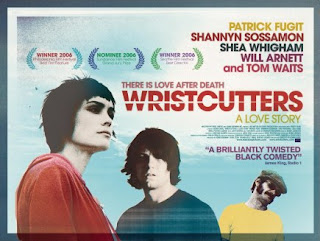When the manuscript of Louis-Ferdinand Céline’s “Journey to the End of the Night” turned up for sale in 2001, no one in the world of antiquarian bookselling needed to ask who had discovered this rarity, missing for decades. It could only have been Pierre Berès, the king of French booksellers, friend to
Picasso and Éluard, publisher of Barthes and Aragon, a man renowned for his taste and connoisseurship, his vast financial resources and his ruthlessness in the pursuit of the rare and the beautiful. Mr. Berès died on Monday at 95, members of his family announced to the French press on Wednesday.
“We have lost a legendary figure in the world of art, collecting and publishing,” said the French culture minister, Christine Albanel.
Mr. Berès had already staged a memorable exit from the world of books in 2005. Closing the store he had run since the late 1930s on the Avenue Friedland, near the Arc de Triomphe, he put his collection of 12,000 books up for sale. In a series of six sales at Drouet, the auction house, spaced out over two years, records fell as bidders lined up for treasures like the first edition of Rimbaud’s “Season in Hell,” inscribed by the author to Verlaine.
The sale realized more than 35 million euros. Mr. Berès headed off to retirement in his modern villa in St. Tropez, but not before making a final grand gesture. Unexpectedly, he removed from the sale and donated to the French nation an edition of “The Charterhouse of Parma” that included Stendhal’s revisions, undertaken after he read Balzac’s criticisms of the novel’s opening pages.
Mr. Berès excelled at creating a personal mystique. “I do not seek, I find,” he once proclaimed, cryptically, about his uncanny knack for turning up rare editions. His own background, which he deliberately kept vague, only added to his allure. Born in Stockholm in 1913, he bore the surname Berestov, but throughout his life he remained silent about his parents. He grew up on the Left Bank, attended the prestigious Lycée Louis-le-Grand and in his early teens began collecting autographs and haunting the bookstalls of Paris in search of periodicals with authorial inscriptions.
Early on he displayed nerve and charm, two qualities that would carry him far. At 13 he knocked on the door of Georges Clemenceau, the former prime minister of France, presented him with a notebook and asked for his autograph. Captivated, the old man complied, unaware that the supplicant on his doorstep had approached every other member of the French Academy to gather a complete set of autographs.
While still a student, Mr. Berès set up as a dealer, buying new first editions and reselling them later at a small profit. André Gide, who lived a few doors away on the Rue Vaneau, entrusted him with three of his manuscripts to sell.
Precisely how Mr. Berès within a few years parlayed his early sales into a shop of his own, Incidences, on the Rue Lafitte, remains puzzling. A 2004 profile of Mr. Berès in Le Temps states that after being offered some stolen books, he sought out their owner, a down-at-the-heels aristocrat, whose library he then sold, and whose extensive contacts he took full advantage of.
In any case, he navigated the turbulent economic waters of the 1930s with surprising ease, exhibiting a sharklike appetite for opportunities like the distressed state of American millionaires. A quick trip to the United States in 1938 netted the collections of Mortimer Schiff and Cortland F. Bishop.
Mr. Berès returned to France with first editions of Cervantes and a trove of French Renaissance books once owned by François I. He sold a few volumes to cover the costs of his trip and put the rest in storage for several decades, during which time their value increased exponentially. This strategy served him well throughout his career.
Rivals found him unscrupulous. In one celebrated instance he advertised in his own catalog some choice specimens that happened to belong to a competitor. When a client expressed interest, Mr. Berès told him to wait while he fetched the required volumes from his warehouse. Instead he raced to his competitor’s shop, bought the books and resold them.
Such habits died hard. In 1941 he approached the writer Paul Léautaud with a first edition of his novel “Petit Ami,” formerly in the possession of the poet Henri de Régnier. Perhaps the author would now like to inscribe a dedication? Léautaud was appalled. “Write it yourself,” he shouted, slamming the door. Mr. Berès, after entrusting his assistant Lucien Goldschmidt to open a New York branch of his bookstore in 1937, moved to new premises on the Avenue de Friedland in 1939. He survived the war unscathed. The German writer Ernst Jünger, in his wartime Paris journal, described buying several volumes at the Berès bookstore, and not at a discount, either.
It was during this time that Mr. Berès, often accompanied by the writer Raymond Queneau and the photographer Brassaï, would drop by Picasso’s studio. After the war
Matisse selected Mr. Berès’s bookstore to exhibit “Jazz,” his collection of prints based on cutouts.
Mr. Berès’s circle of artistic and literary friends broadened after he acquired Éditions Hermann, a publisher of science books, in 1956. Over the years he developed a distinguished catalog of books on mathematics, physics, philosophy and literary criticism, with a stable of writers that included Aragon, Barthes and Queneau. He also branched out into limited-edition art books and began collecting art. On the walls of his house in Paris visitors could admire works by Seurat, Balthus and Matisse.
These were the beginning of the glory years for Mr. Berès; they lasted more than half a century. Combing the death notices of French newspapers with an eye to hidden links that might lead to great finds, he courted the great and the small. He coaxed an annotated Stendhal from Proust’s maid. Wrapped in a red shawl, often with a Siamese cat perched on one shoulder, he would turn up at magnificent chateaus, talk his way inside and emerge with treasure.
Competitors referred to him, enviously, as a “seduction machine.” Women found him to be one. He married three times and fathered eight children, of whom seven survive: Pervenche, Anémone, Angélique, Platane, Achille, Jacques and Anne-Isabelle Montanari.
He never took on a business partner, routinely outbid rivals for choice merchandise, showed no deference to grand clients and in general operated as if he were the sun in his own solar system.
At the same time, his bookstore was much more open and welcoming than the typical French antiquarian business, in which only selected clients get to see the top-quality books hidden in a back room or upstairs.
“He cut his own swath,” said
William Wyler, a partner in Ursus Books and Prints in Manhattan. “He just bought great books, and if he liked you, he sold them to you.”
Over the years Mr. Berès’s collection included a 1670 edition of Pascal’s “Pensées,” a 20-volume edition of Balzac’s “Comédie Humaine” inscribed “to my dear mother from her devoted son Honoré,” and a first edition of “Madame Bovary” sent to Alexandre Dumas by the author with a note, “The homage of an unknown, Gve Flaubert.”
As he acquired, he also gave. He donated the archives of Pierre and Paul Curie to the Bibliothèque Nationale, and after giving the archives of the composer Paul Dukas to the library in 1959, he was awarded the Legion of Honor.
On the other hand, the library had to organize a subscription campaign in 2000 to buy, for what Mr. Berès called “a friendly price,” the nine-volume manuscript of Charteaubriand’s “Mémoires d’Outre-Tombe.”
A year later the library paid 1.8 million euros for the mysterious Céline manuscript. When asked how the manuscript came to him, Mr. Berès answered, “Through the door.”
Summing up Mr. Berès, Mr. Wyler said, “An exceptional mind, exceptional taste, exceptional connoisseurship.”
Mr. Berès’s farewell auction offered countless examples of that taste, like his first edition of “Les Paradis Artificiels.” It was Baudelaire’s own copy, with the author’s notes in the margin.
“This was precisely the sort of thing that Pierre Berès would have,” said John Bidwell, the Astor curator of printed books at the
Morgan Library & Museum. “The most desirable copy of an important book.”


































